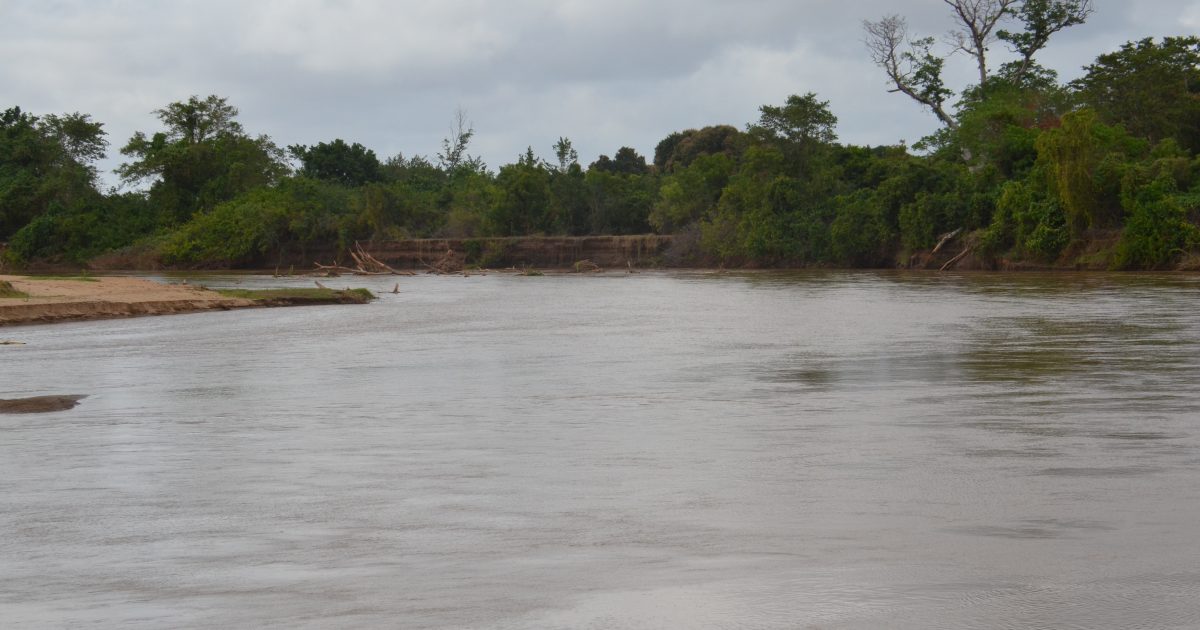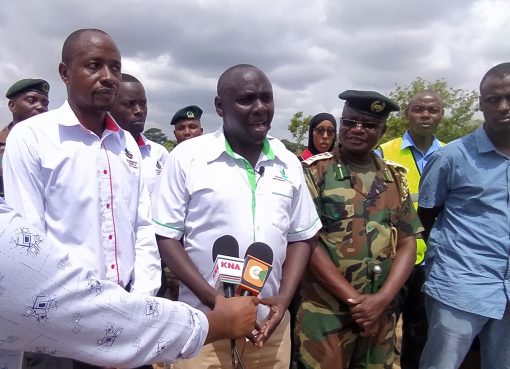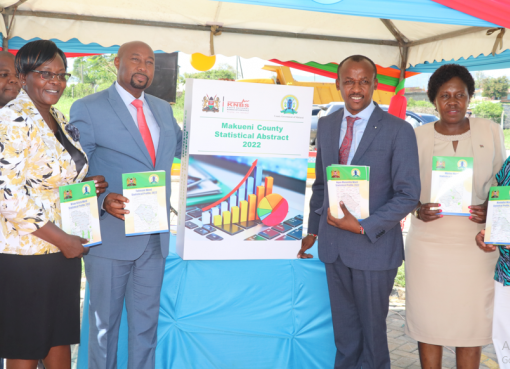The Ministry of Energy and Petroleum, in collaboration with the county government of Muranga, have commenced implementation of a project on rehabilitating riparian land along the southern parts of the Mathioya River.
The programme, dubbed the Kenya Energy-sector Environment and Social Responsibility Programme Fund (KEEP), will be implemented at a cost of Sh. 45 million for a period of four years.
The project, which will involve the planting of trees and fodder along a stretch of 10 kilometres of riparian land along both sides of the river, is aimed at curbing soil erosion, which has led to the siltation of Mathioya dam.
The dam, along the south bank of the Mathioya River, is a main source of water for a KenGen-owned Wanjii power generation station on the outskirts of Murang’a town.
Deputy Director of Renewal Energy, Ms. Esther Wang’ombe, who is the coordinator of the project, said farmers with farms neighbouring the river have been involved in planting trees and fodder along the riverine.
Wang’ombe noted that siltation occasioned by soil erosion along the river tributaries has affected the capacity of power generation at Wanjii station.
She stated that the fund finances activities related to the growing of trees for the purpose of soil conservation and the preservation of water catchment areas for hydro-power dams served by the river.
“The dam which serves the hydro-power generation station has greatly been affected by siltation from the Mathioya River’s tributary. This project also involves the construction of gabions and the digging of terraces on farms bordering the river to control soil erosion,” added the Deputy Director.
She continued, “Already more than 70, 000 tree seedlings were planted during the past rainy season as the farmers are awaiting to plant fodder and a variety of fruit tree seedlings during the short rains.”
A team from the county government was involved in mapping out areas regarded as hot spots in terms of soil erosion and identifying farmers whose farms border the riverine areas to be involved in the afforestation efforts.
“We also engaged chiefs, assistant chiefs, and village elders to gather information from farmers whose farms border the riverine on preferred tree seedling species and procure and issue seedlings to farmers as per their preferences.” Added the coordinator.
A quarterly monitoring exercise done by the end of July on the project revealed that seedlings planted at the beginning of the rainy season had a survival rate of over 90 percent.
“But the project faced a challenge where fruit seedlings planted along the riverine areas were stolen. This compelled farmers to uproot the remaining Avocado and Macadamia seedlings for planting near their homesteads, far from the critical areas where they were meant to be planted.” Divulged Wang’ombe.
The Deputy Director further said the Mathioya River also links with the Tana River, thus being a source of water for Masinga Dam, which is a major reservoir for hydro-power generation.
“Apart from conserving the riparian land along the southern parts of the Mathioya River, the project will contribute immensely towards the President’s 15 billion Tree Planting Campaign to be achieved in the next 10 years,” she further stated.
By Bernard Munyao





